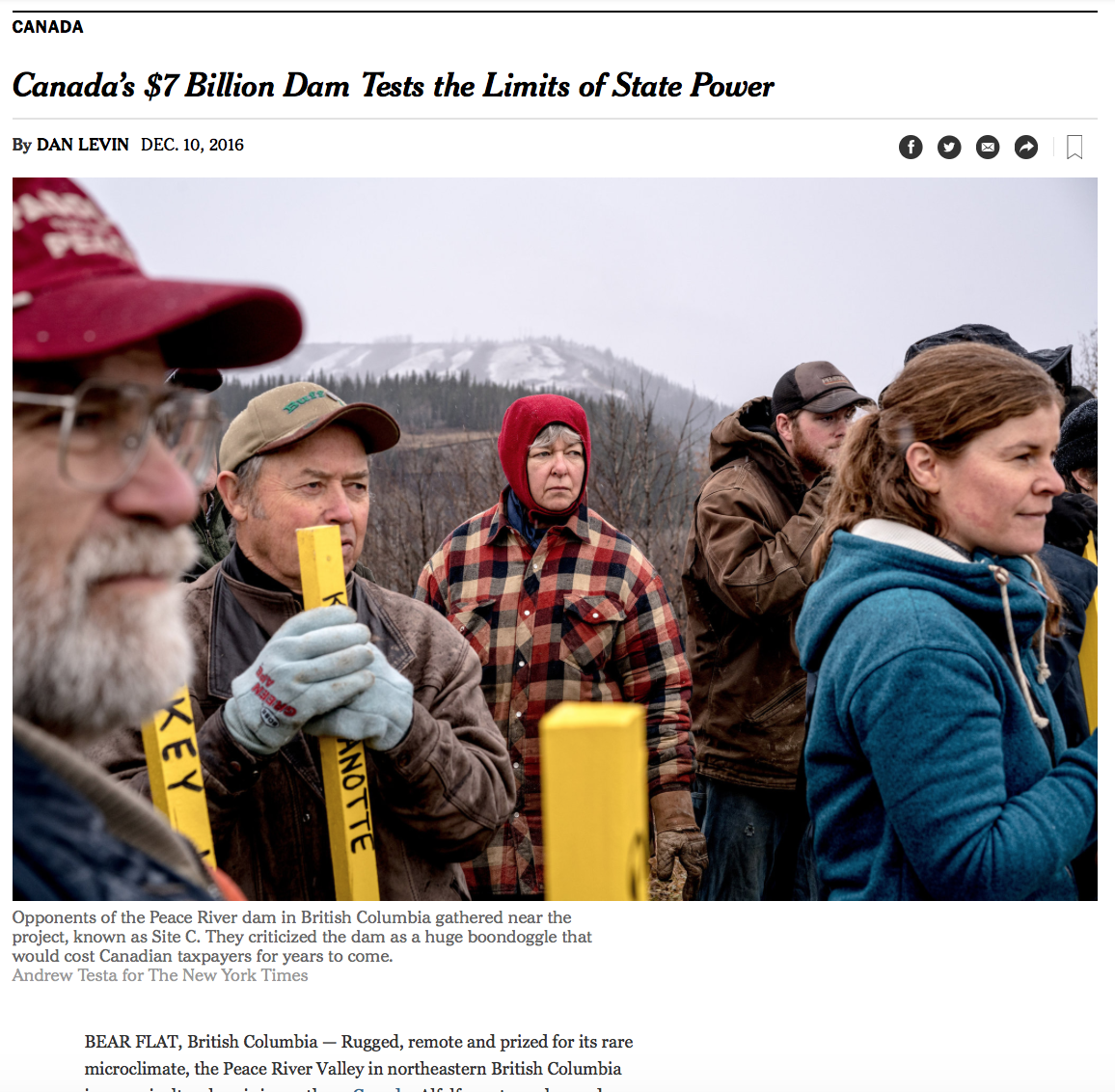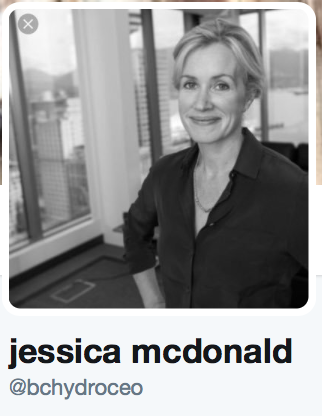
Bob Mackin
Man the Twitter stations!
That’s how BC Hydro CEO Jessica McDonald reacted after a Nov. 8, 2016 interview with New York Times reporter Dan Levin.

New York Times story on B.C.’s Site C dam
Levin came to northern B.C. on assignment in late October to tour the Site C dam construction site. He later had a phone interview with McDonald, the BC Liberal insider who runs the $5.66 billion utility under chair and patronage appointee Brad Bennett. Her ex-husband, Mike McDonald, is the Liberal campaign manager and a senior associate at BC Hydro contractor Kirk & Co.
How did those interviews go? It’s a secret. Internal reports were censored. BC Hydro claimed disclosure would harm personal privacy.
After Levin was toured around the site by Hydro’s David Conway, Conway sent a summary on Oct. 28 to various BC Hydro spinners. The version released to theBreaker was all blacked-out.
On Oct. 29, Conway prepared McDonald for her interview with Levin. He told the boss that he anticipated Levin would ask her about First Nations rights and title and Amnesty International’s human rights concerns, geological/geotechnical surprises, safety and the impact on the project cost.
On Nov. 12, Hydro’s policy and reporting director Chris Sandve sent a similar email summary of McDonald’s interview to his cohorts. Same deal. All blacked-out.
The next day, Jordan Keim wrote that “Jessica has asked us to prepare a series of tweets in advance of an NY Times article on the project…”
Thirty-eight Tweets, to be precise.
Levin’s story was published Dec. 10 and read, in part:
Within a decade, water will flood a 51-mile stretch of the river, the result of a $7 billion (8.8 billion Canadian dollars) hydroelectric dam and power station, known as Site C. It will be one of the largest public infrastructure projects in Canadian history.
The project has prompted mounting opposition and legal challenges from industry experts, former government officials, local landowners, aboriginal communities and others who say Site C poses a risk to the environment and violates constitutionally protected indigenous rights.
But opponents cite another simple reason the project should be stopped: After a decade of flat  demand for electricity and the emergence of cheaper energy alternatives, the dam, they say, is an enormous boondoggle that will saddle taxpayers with huge debts for generations to come.
demand for electricity and the emergence of cheaper energy alternatives, the dam, they say, is an enormous boondoggle that will saddle taxpayers with huge debts for generations to come.
On Dec. 13, BC Hydro responded with a letter to the editor, which McDonald also Tweeted. She seemed miffed that she didn’t wake-up to find her name in one of the world’s most-famous newspapers. How dare a journalist from a respected foreign publication question the wisdom of spending almost $9 billion of other people’s money!
“Mr. Levin’s article leaves the reader wondering why on earth BC Hydro would even want to build this project,” McDonald wrote.
British Columbians, her ultimate bosses, might be asking two other questions: 1) Why on earth wasn’t there a referendum, for citizens to decide Site C? 2) Why on earth is the Liberal cabinet not letting the B.C. Utilities Commission do its job and review the project?
2017-170_Final Response (Sent 28 Mar 2017) by BobMackin on Scribd










